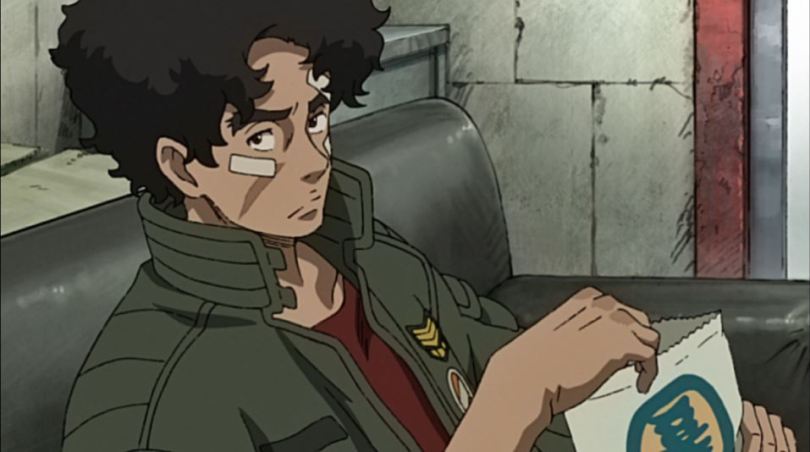What’s it about? Junk Dog (J.D.), known only by the name he uses in the ring, is wasting his life throwing matches at an underground boxing ring. But a chance encounter with the champion of megaloboxing reminds him what a real opponent feels like, and what he might be missing.
Do not stop me if you’ve heard this one before, because I can basically guarantee that you have. A down-on-his-luck boxer, a diamond in the rough, is wasting his talent away waiting for his shot. He crosses paths with someone who will change his life, and a rival who makes him feel passionate about his sport. He gets soundly defeated (the episode ends before their fight, but I feel pretty confident about my guess), so he has to prove his way through the ranks of a big tournament in order to get a rematch. Along the way, he learns to have confidence in himself.
It’s an inspirational sports story of the most basic mold, but it’s hard to be mad when the show hits its beats so well. Yoshimasa Hosoya’s voice occasionally sounds a bit jarringly deep and rough for J.D.’s youthful design, but the performance is solid, conveying a sense of barely managed restraint under a detached cover. The music is a standout as well. While there are no long explanations of difficult and impressive techniques (yet), the soundscape cues the viewer to know when tensions are ramping up and when we’re meant to be impressed, taken aback, or disappointed by what’s happening in the ring.

Visually, MEGALOBOX might just be an escapee from the 1990s. Its earthy palette, heavy linework, and semi-realistic characters all have the look of decades past, brought to new and gorgeous life by the animators at TMS and Orange (most recently of Land of the Lustrous). The Gear the boxers wear (technological enhancements that make it “megaloboxing” rather than just boxing) help tell the stories of opponents before we ever hear them speak, and the show isn’t afraid to use sporadic bursts of brutality to underline the dangers of the sport.
There’s also an interesting undercurrent going on with J.D.’s status as an undocumented citizen (which initially bars him from entering the big tournament), a theme that’s potentially potent both for Japan—which takes an incredibly small number of refugees and often has abysmal conditions for immigrant workers—as well as western nations. Hopefully the show will go on to explore that potential in a meaningful way.

While the Magalonia tournament is theoretically open to “any citizen,” I wouldn’t hold my breath about seeing any women in the boxing ring. This feels very much like a story About Masculinity—and that’s okay, particularly if the series takes the opportunity to explore the destructive side of the common elements of a solo-sport story (focus on individual prowess, pride, aggression, and dominance) as well as how they give J.D. confidence and purpose.
Sport stories are generally the furthest thing from my bag, but between the high production values and thematic potential in the premise, I’m on the hook for at least a few more episodes. Hopefully the show’s writing steps up to the level of its technical finesse.






Comments are open! Please read our comments policy before joining the conversation and contact us if you have any problems.